This week, Cotality released data, based on around 97,000 resales, showing that 94.8% of sellers made a nominal profit across Australia in Q2 2025. The median profit on sale also hit a record high of $315,000, up from $305,000 in the previous quarter.
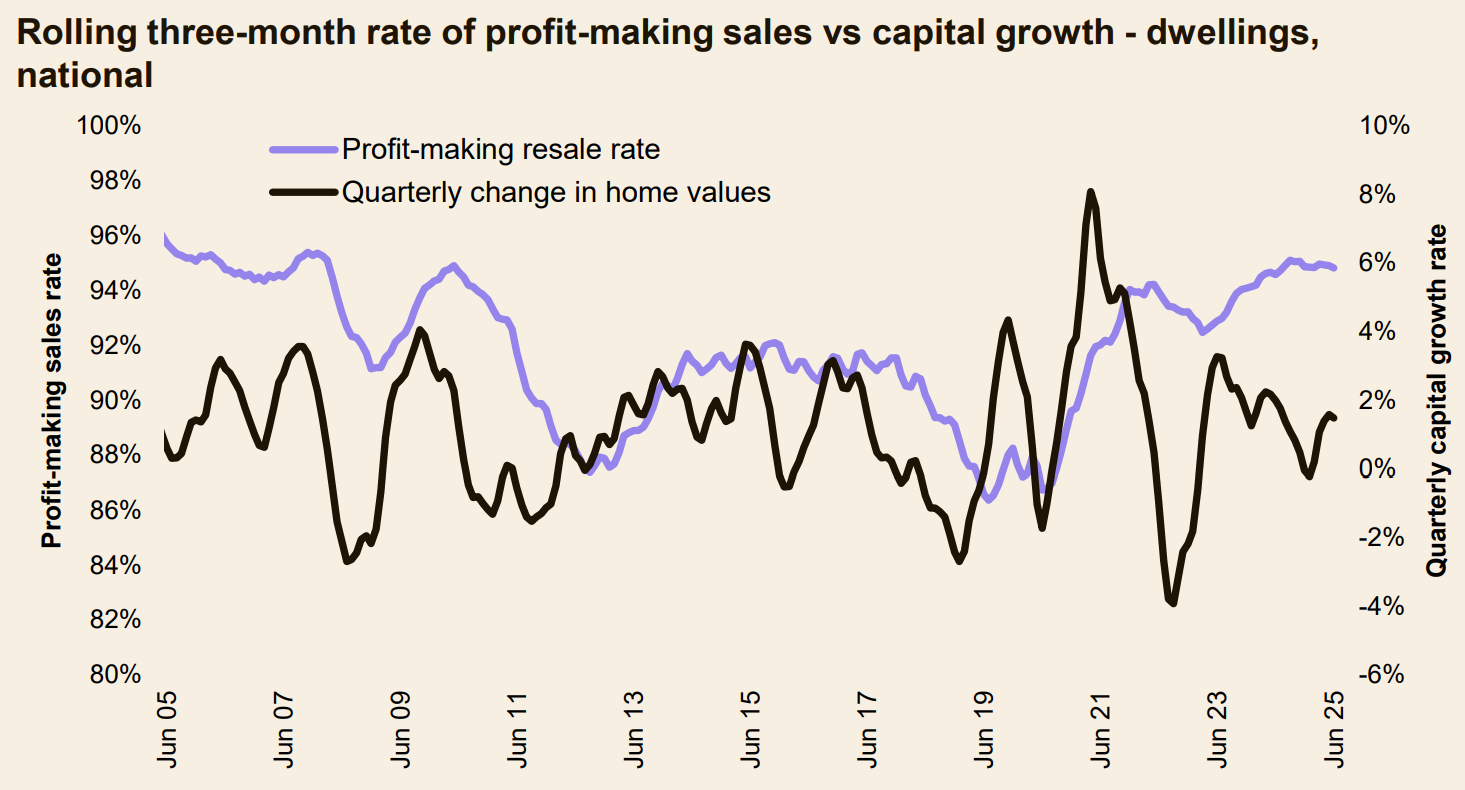
Source: Cotality
New South Wales, which is home to the nation’s most expensive homes, accounted for six of the top ten most profitable Local Government Areas (LGAs) in the country by median gains in Q2.
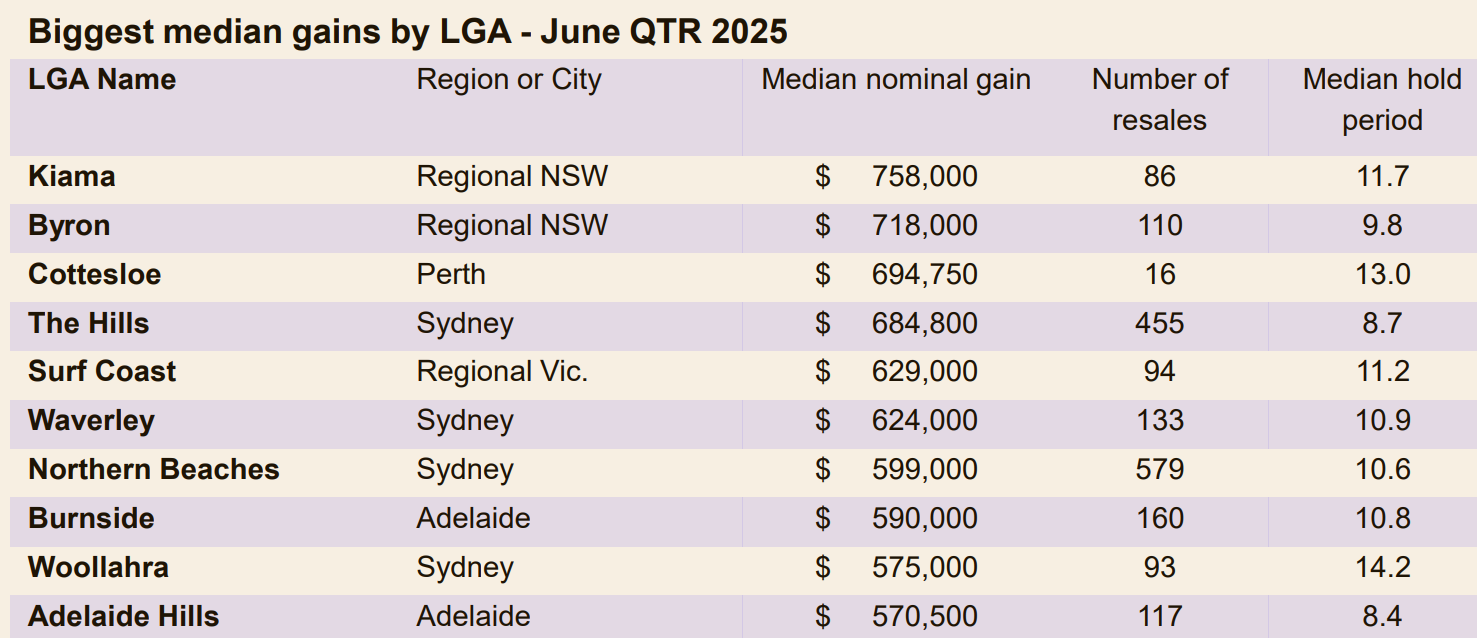
Source: Cotality
Brisbane was the most profitable of the capital cities in Q2 2025, with 99.7% of resales making a nominal gain. Brisbane sellers also saw the highest median nominal gain of $400,000.
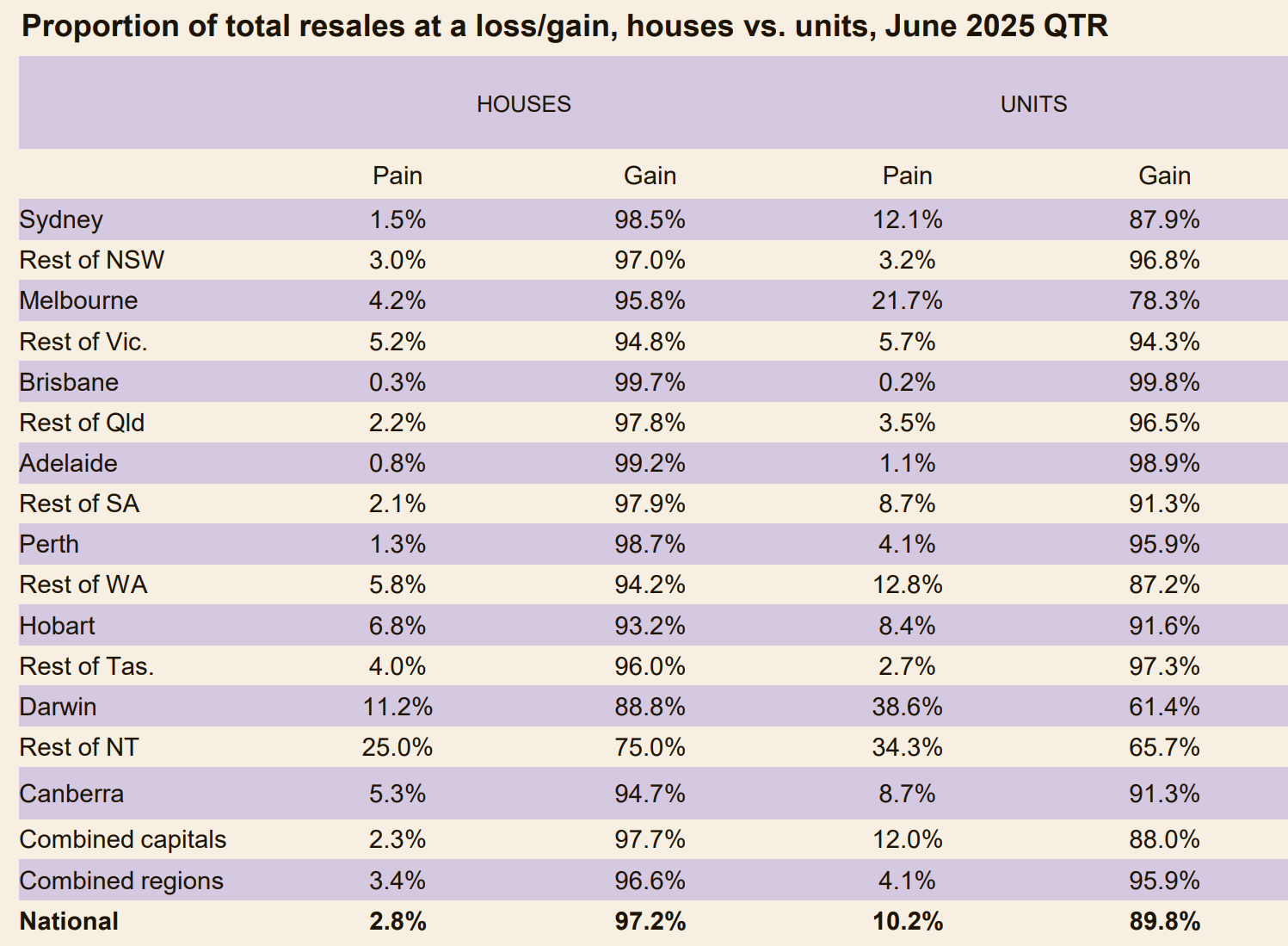
Source: Cotality
By contrast, Melbourne had the highest share of loss-making sales (4.2%) among the major capitals, reflecting its relatively sluggish dwelling value growth since the onset of the pandemic.
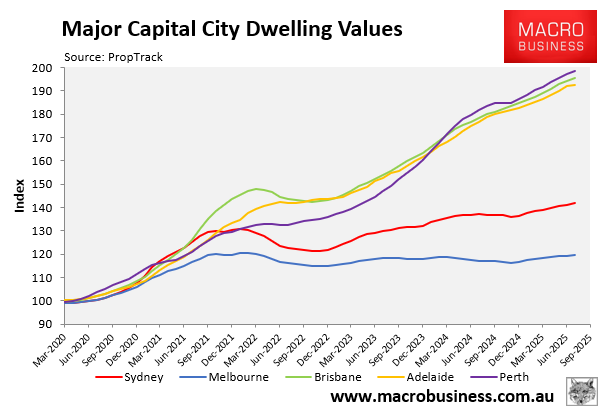
Cotality’s daily dwelling values index shows that capital city homes are appreciating at their fastest rate since March 2024.
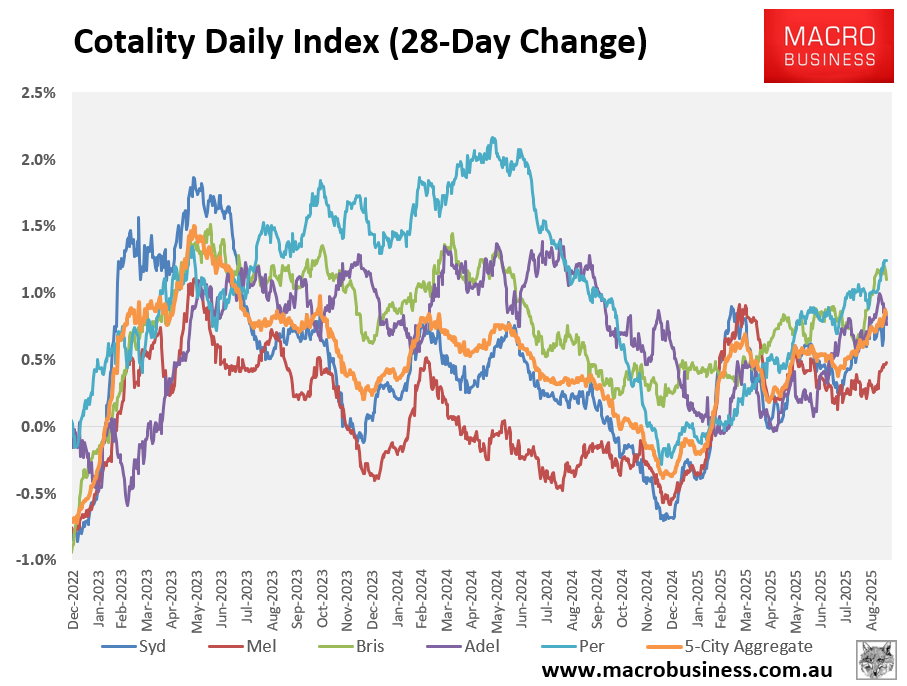
Final auction clearance rates across the combined capital cities are also tracking at their highest level since June 2023.
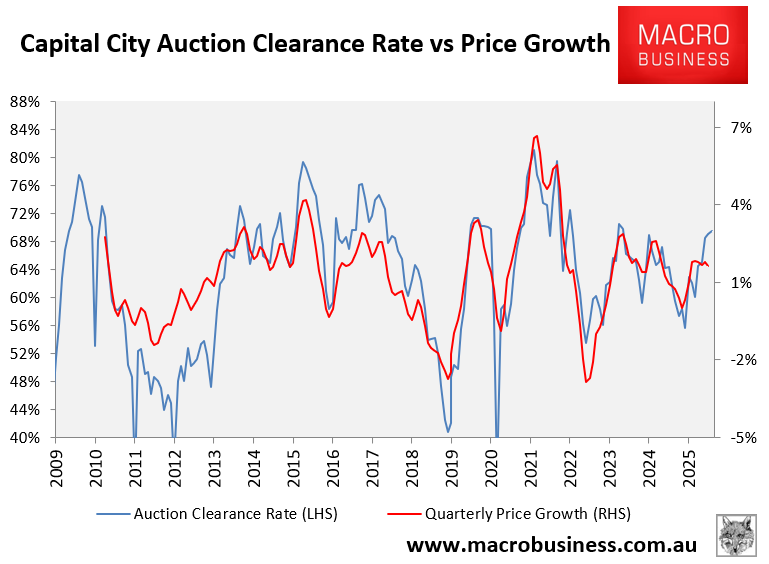
Meanwhile, Australians have turned increasingly bullish on housing, with Westpac’s latest consumer sentiment survey showing that house price expectations are tracking at a 15-year high.
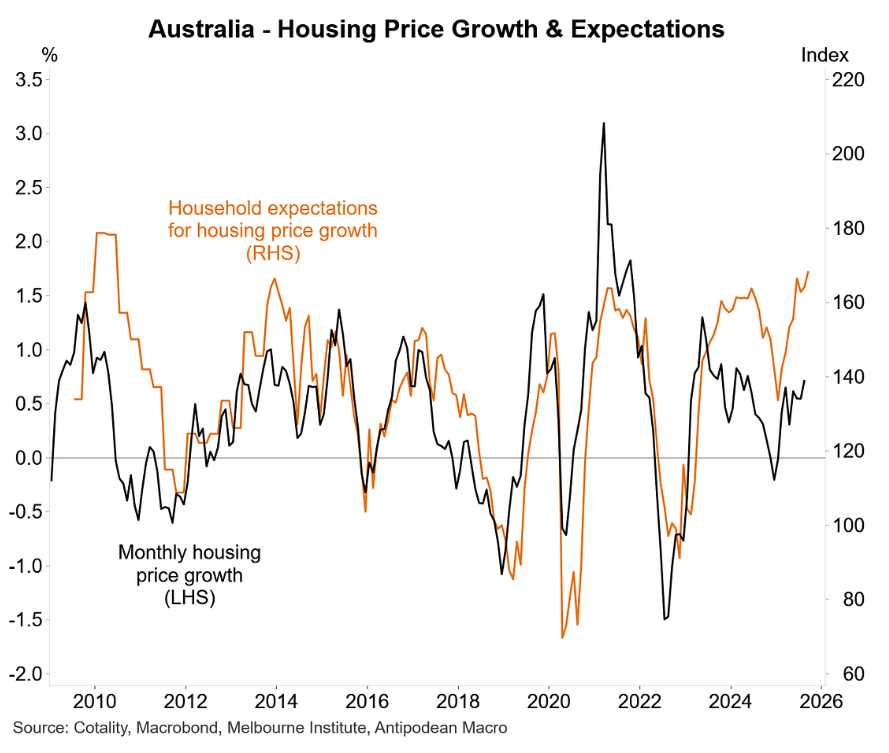
Westpac’s ‘time to buy a dwelling index’ has also rebounded strongly from its cyclical low:
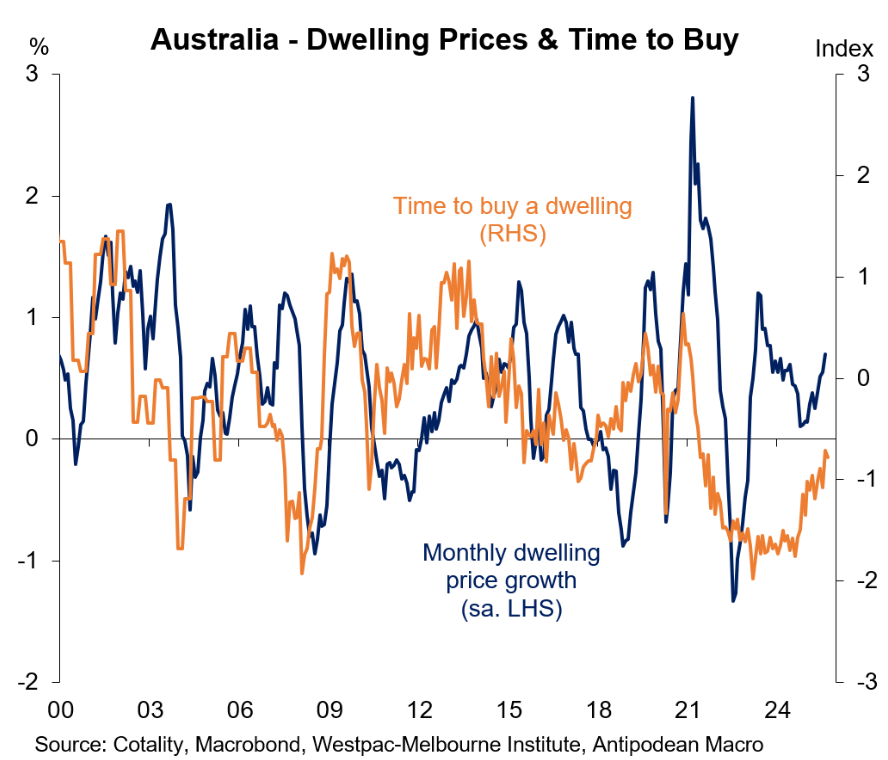
Australians are right to feel bullish, as interest rate cuts are typically associated with double-digit growth in dwelling values.
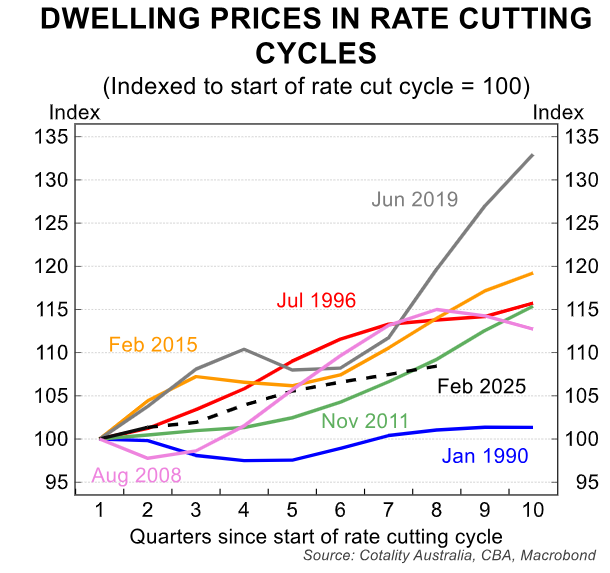
The imminent introduction of the Albanese government’s 5% deposit scheme for first home buyers, which comes into effect at the beginning of October, will also stimulate demand by lowering the deposit gap and increasing borrowing capacity.
Australian housing, which is already valued at more than four times the economy, is about to become even pricier.
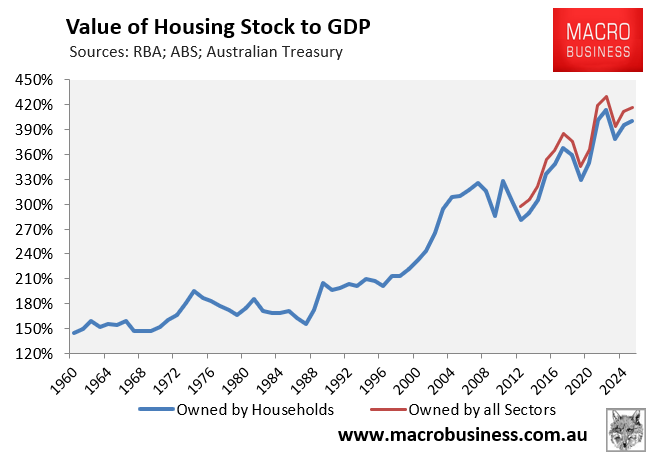
Inflating home values even further risks a larger correction down the track, similar to what has transpired in New Zealand and Canada.
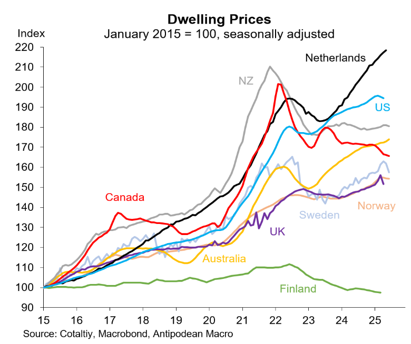
However, that is a problem for late 2026 or 2027.

